Blue skies, mild temps and warm sunshine welcomed turf professionals to the South Florida Turfgrass Field Day and Expo at the beautiful University of Florida Institute of Food and Agricultural Sciences (UF/IFAS) Fort Lauderdale Research and Education Center (FLREC) in Davie on Thursday, March 21, 2019.
This event marks 31 years that the UF/IFAS Turfgrass Science Team has been providing attendees, including golf course superintendents, athletic field managers, sod farmers, and landscape maintenance crews, with the latest information, research and technology available that is needed to manage turfgrasses most effectively, efficiently and environmentally friendly.
Walking field tours of research plots filled the morning, giving participants ample opportunity to get their steps in while learning about turf insect and disease management, nutrient and herbicide interactions, best management practices (BMPs), and cultivar breeding evaluations.
Field tour participants were separated into two groups, either those interested in ‘golf and athletic’ management or ‘landscape’ management, and presenters catered the information in a rotating fashion to those two management needs. I chose the ‘golf and athletic’ focused tour, and here are highlights from the seven field stops.
Stop 1. Breeding Improved Turgrass Cultivars for the Golf and Sports Industry
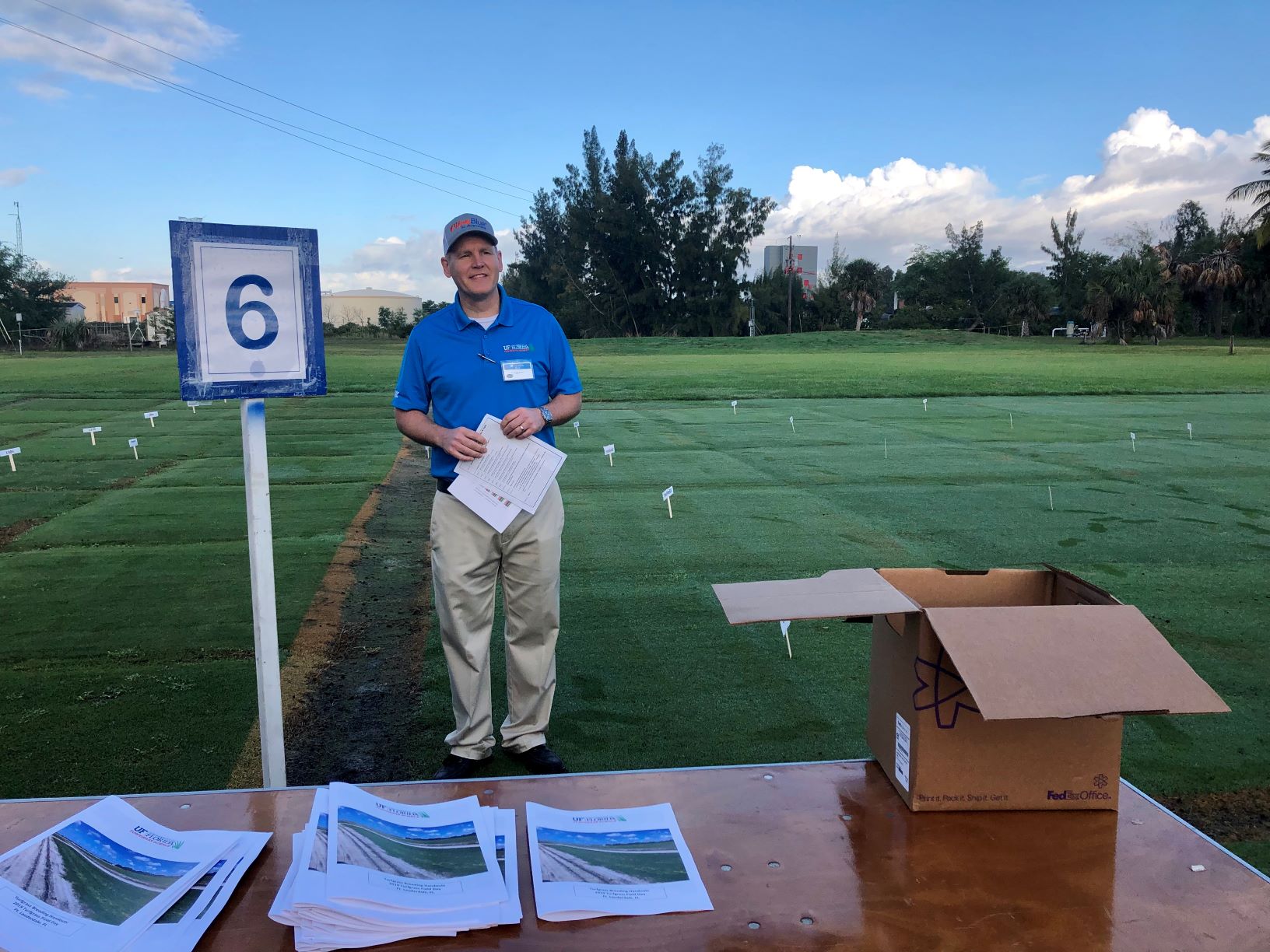

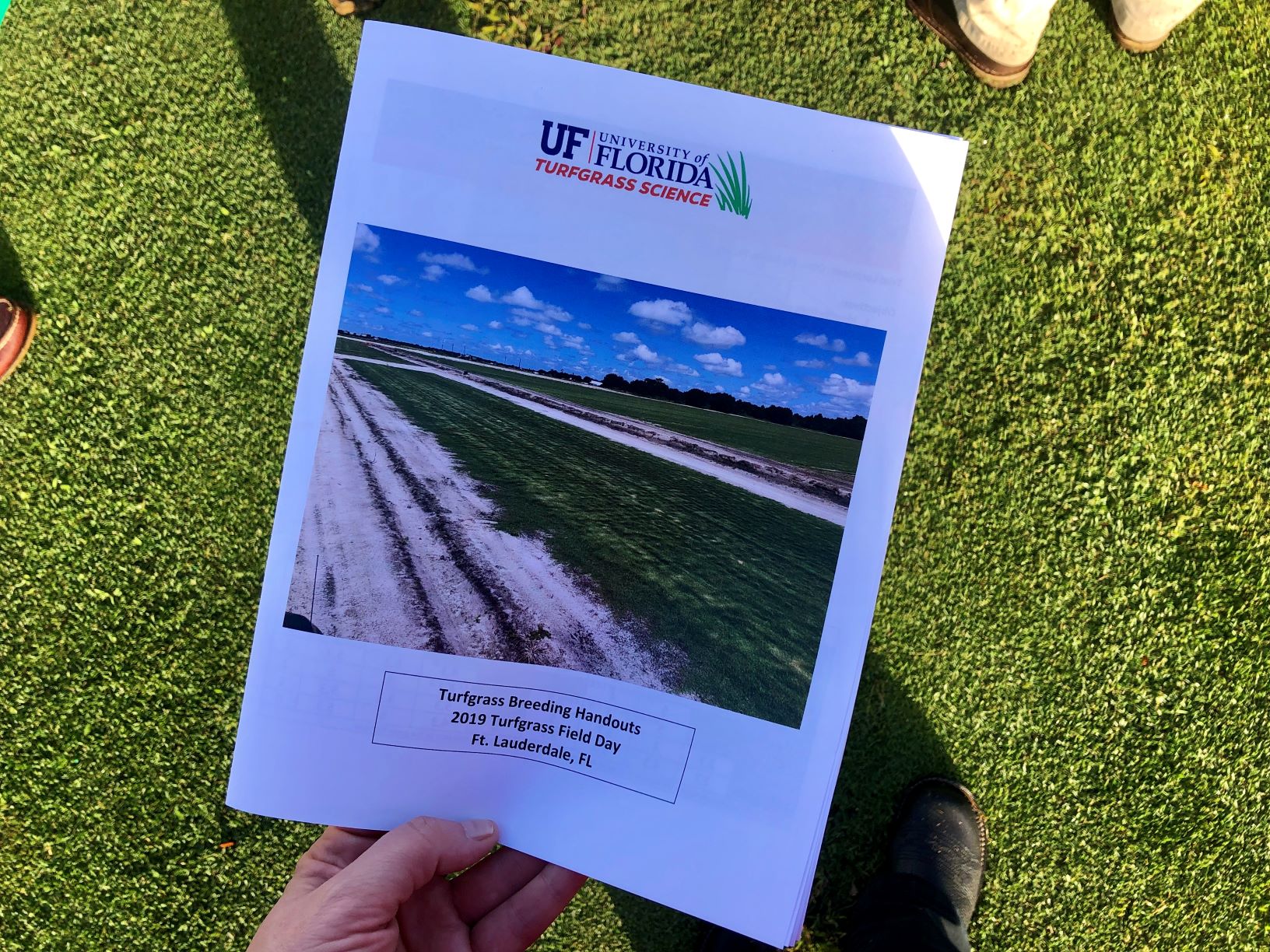
Click here for Zoysiagrass Trial Results
Click here for Bermudagrass Trial Results
Stop 2. Disease Management in Warm Season Turfgrasses
Dr. Harmon’s talk was one that would make any plant disease enthusiast beam with wonder and fascination from all the mentions of cool spores, emerging viral diseases, and other diseases that are not as they have seemed! Lethal viral necrosis, mini ring and bermudagrass decline? Oh my! These are three diseases all turf managers should have on their radar. Below are links to more information about each of these diseases.
Lethal Viral Necrosis of St. Augustine grass: http://edis.ifas.ufl.edu/pp313
Mini Ring: http://gsrpdf.lib.msu.edu/ticpdf.py?file=/2010s/2010/100114.pdf
Bermudagrass Decline: https://edis.ifas.ufl.edu/pdffiles/LH/LH07900.pdf
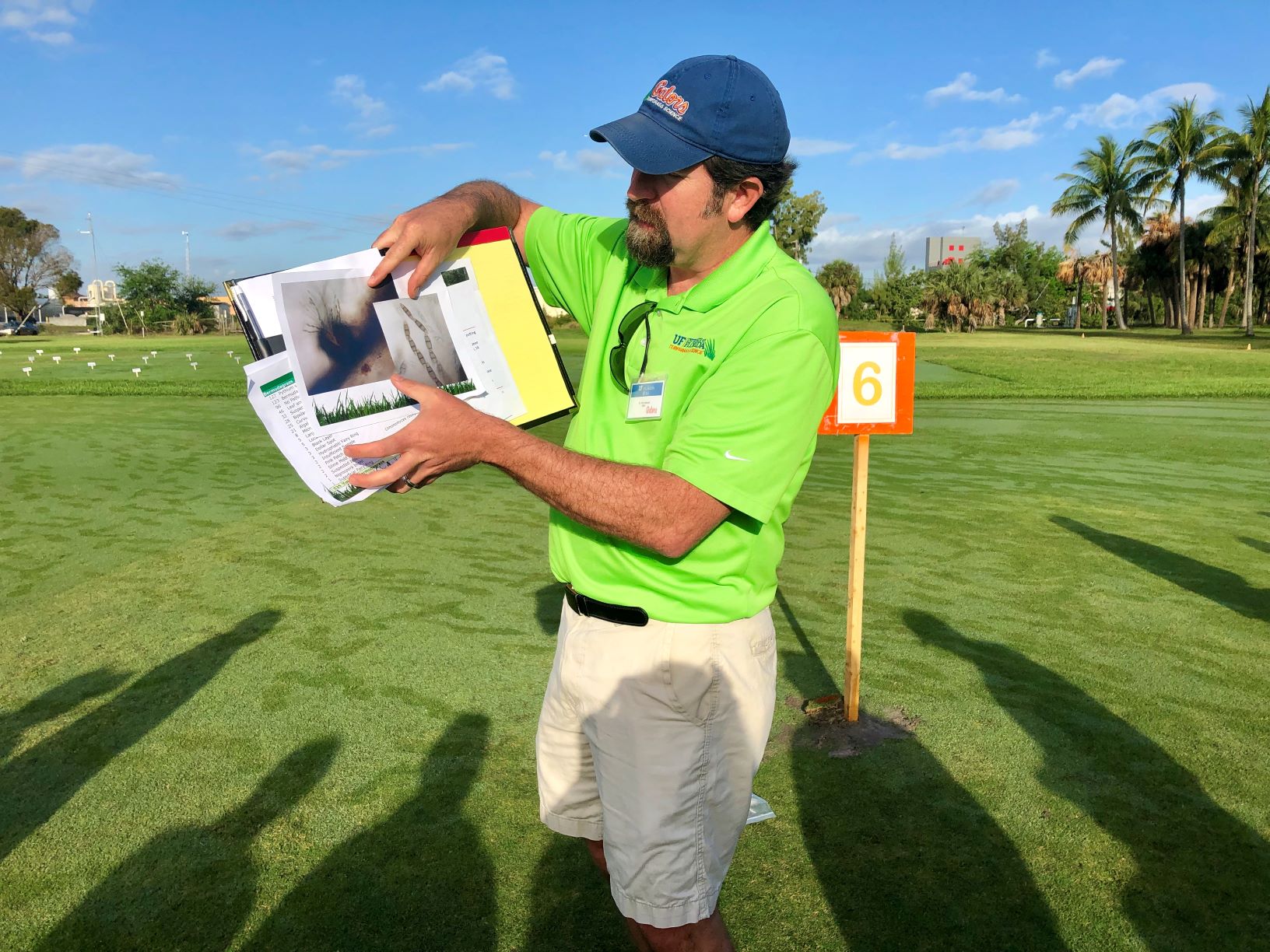
Stop 3. New Tools for Managing Turf Insects
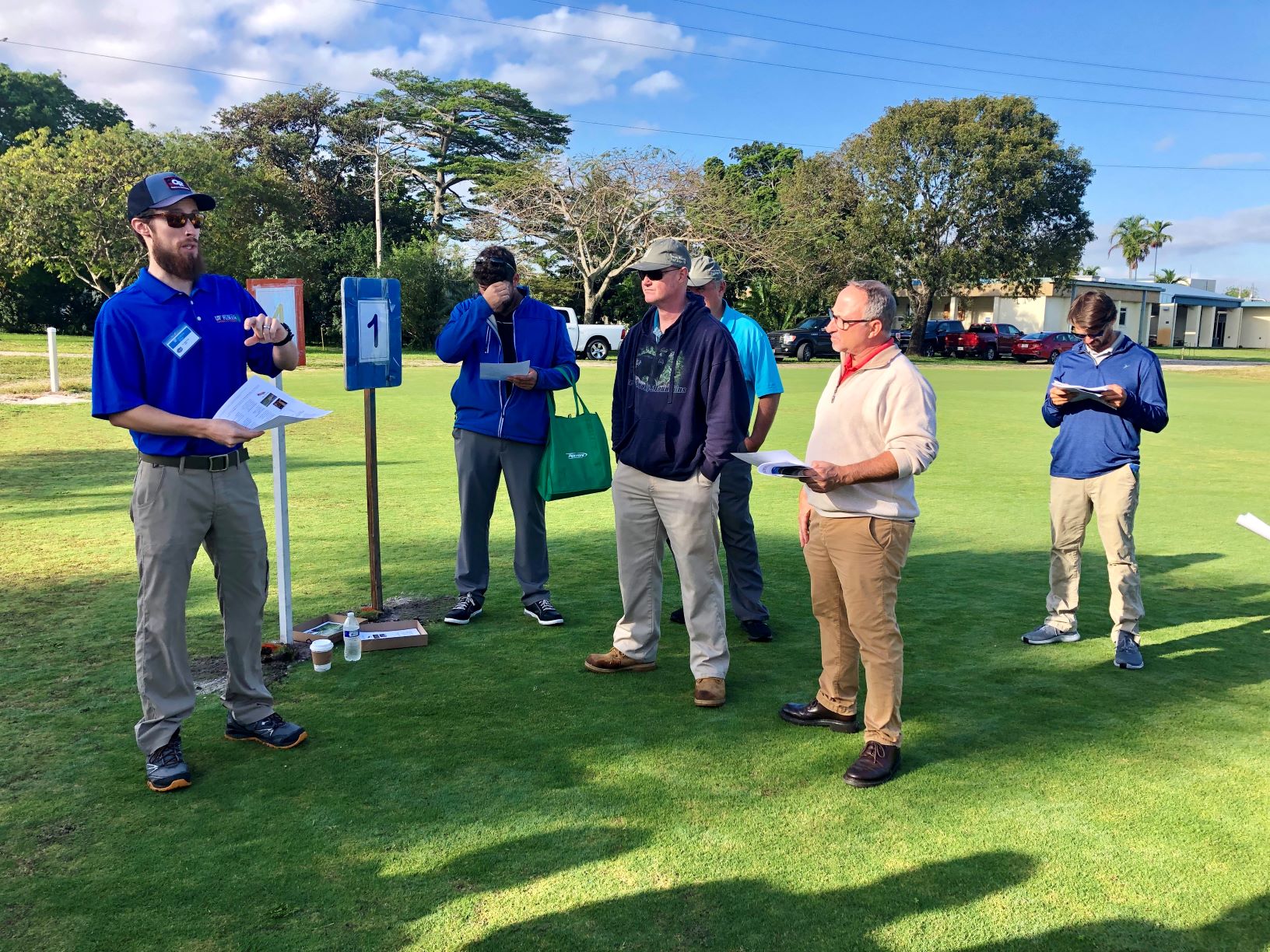
Dr. Dale presented the latest information on turf insect pest management, particularly for bermudgrass mite, tuttle mealybug and mole crickets. He highlighted three new reduced-risk pesticides chemistries available for pest management that are safer for pollinators and other beneficial organisms (see handout below). Dr. Dale explained by using these types of reduced-risk pesticides, you can achieve dual pest control with direct chemical toxicity and biological control from conserved predators. #UFBUGS
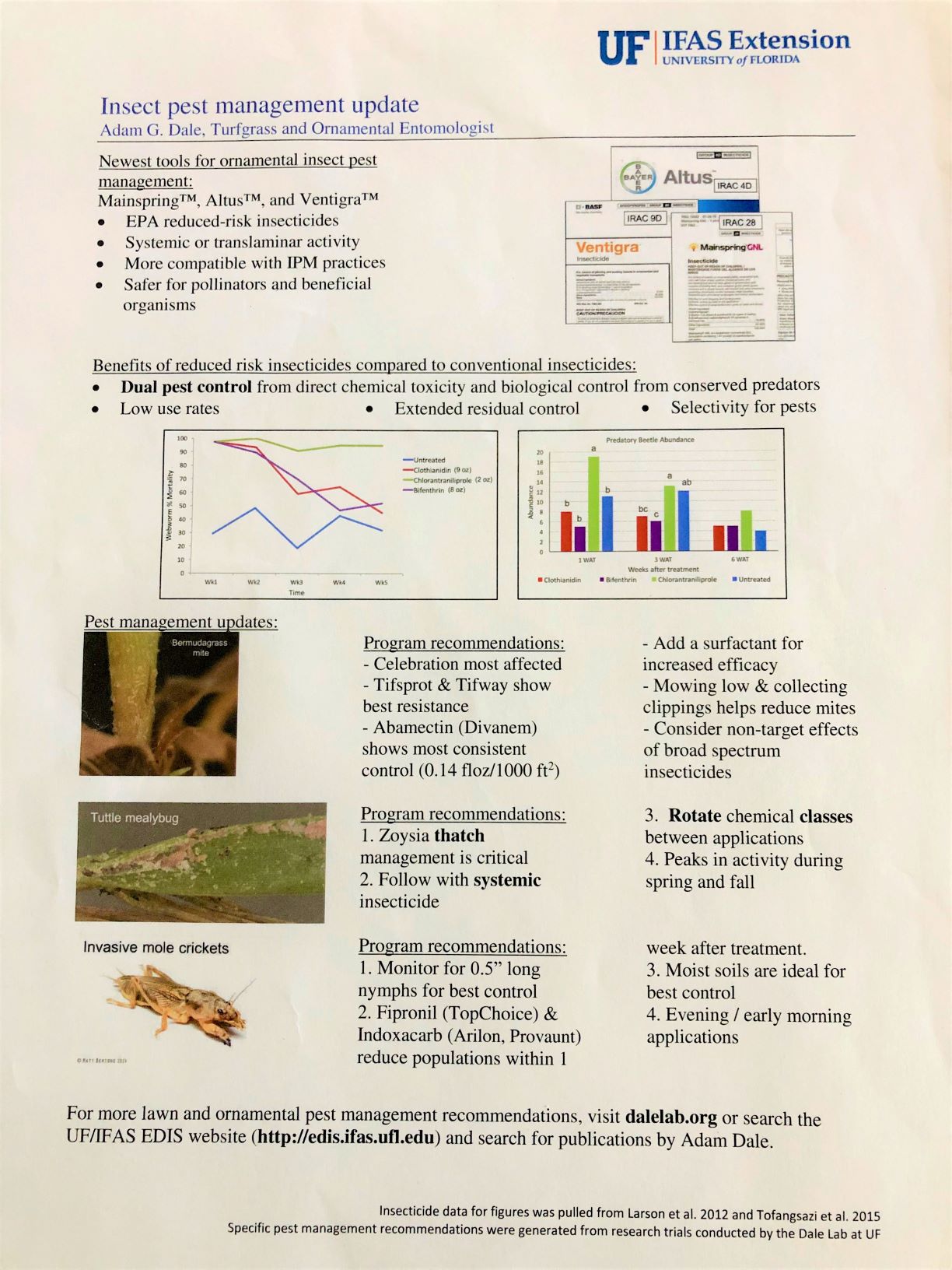
Stop 4. Herbicide and Nutrient Interactions
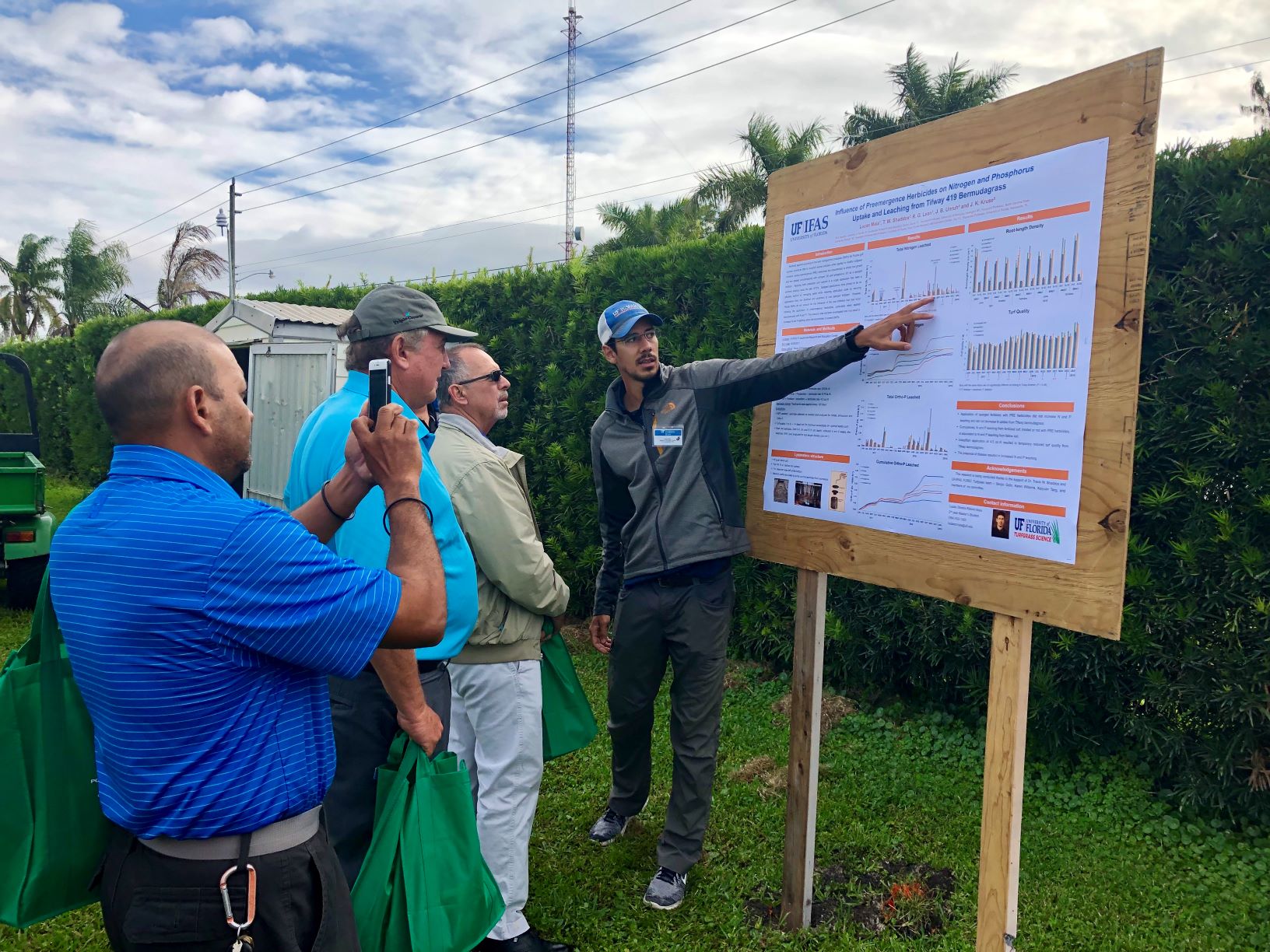
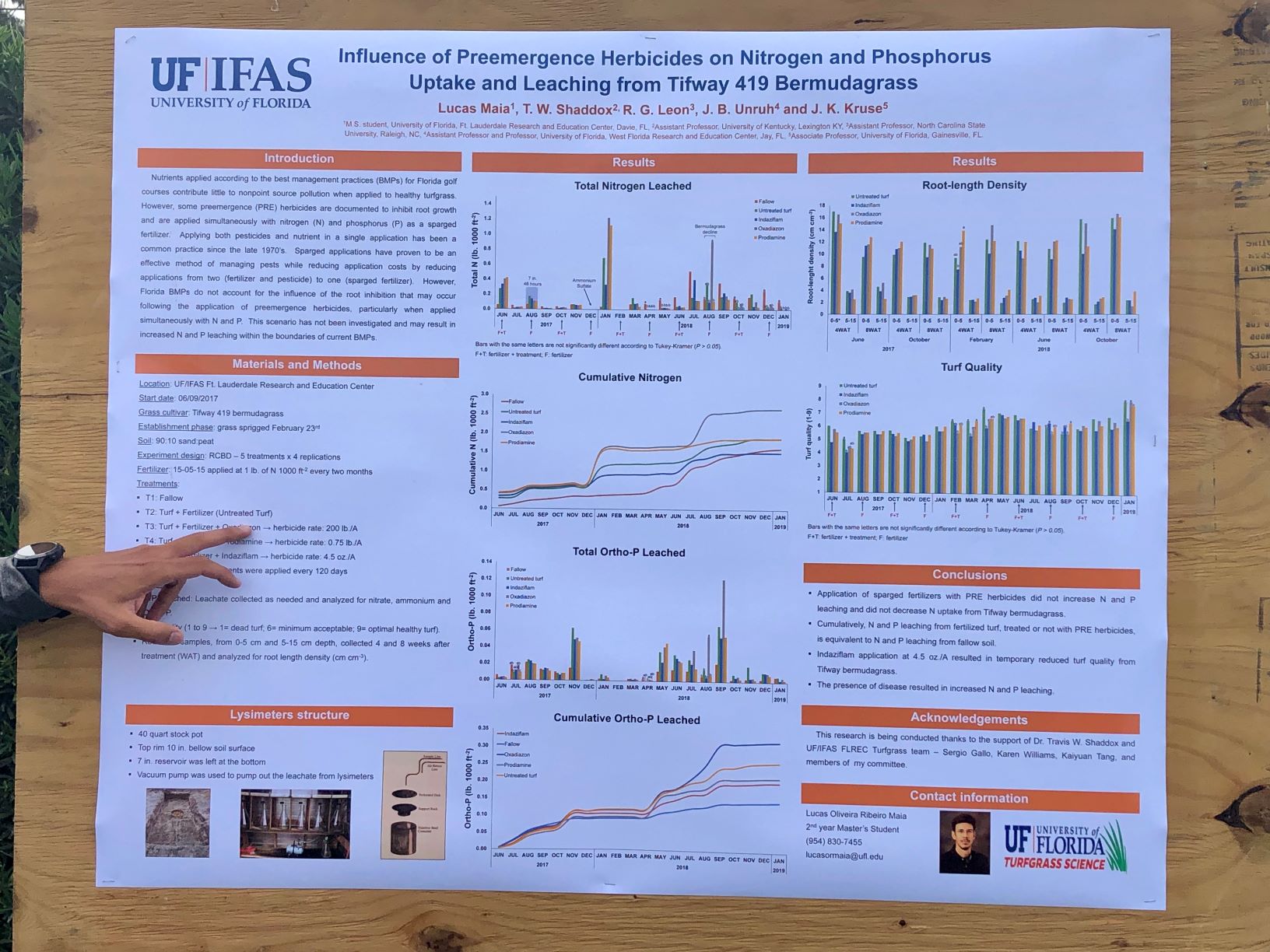
Stop 5. Golf Industry Best Management Practices: A Worthwhile Effort?
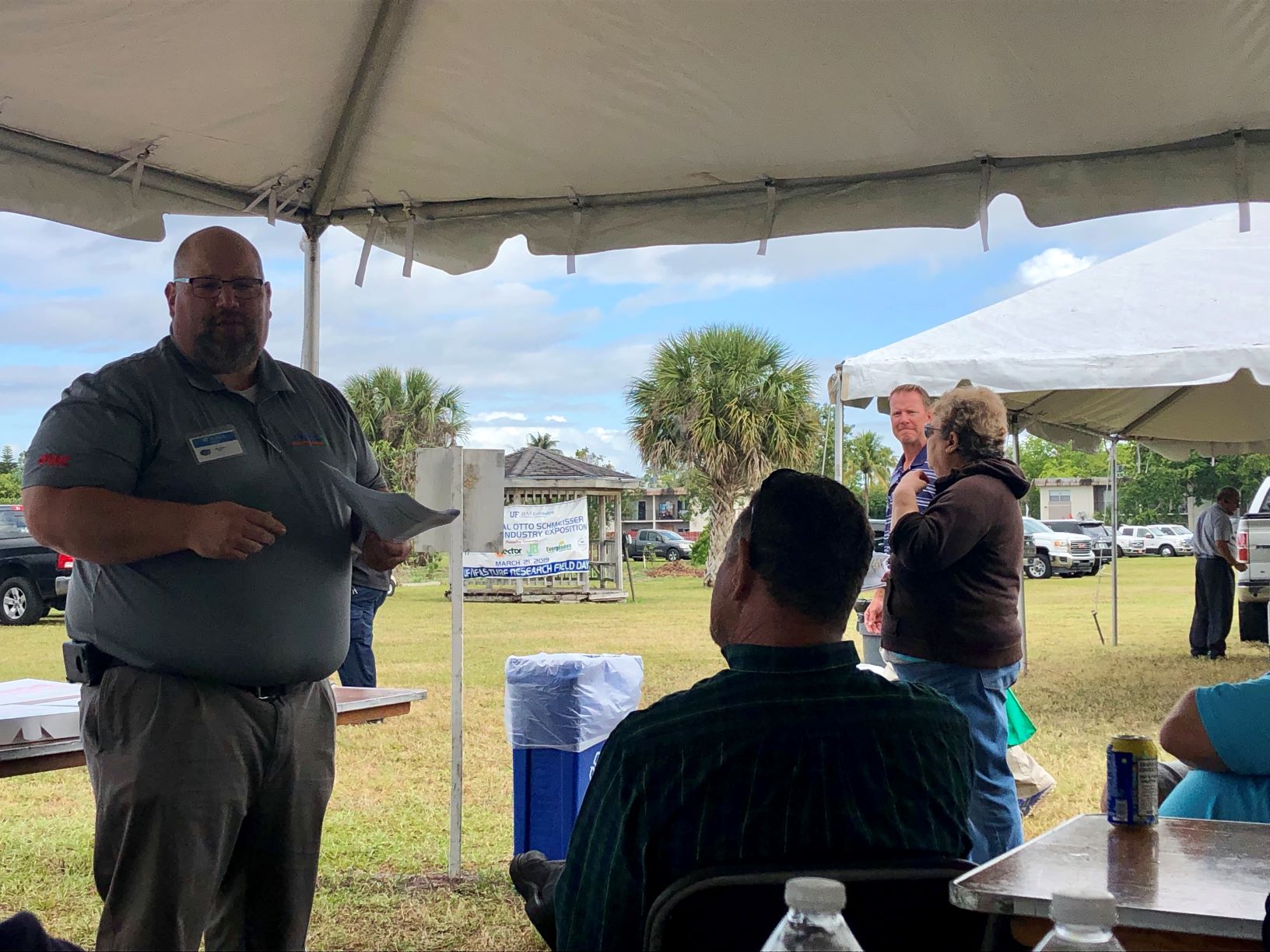
Mark’s stop provided an under the tent discussion on the current golf course BMP program and gave attendees some hot off the press, preliminary survey results from the recently conducted BMP email survey.
The golf course BMP program is a first of it’s kind with the University of Florida’s Dr. J. Bryan Unruh leading the charge since 2009. The program is a voluntary, 7-hour course that ends with a certification exam that if passed is valid for 4 years. A recent survey was sent out to turf industry professionals with the goal to get information that will help improve the program.
Mark stated that 79% of survey respondents stated they have been through the program, while 19% were not but plan to be, while 2% said they were not and do not plan to be. Scheduling conflicts, time constraints, and the fact that the program is a voluntary program were the main reasons listed for courses not being enrolled in the program.
Currently, 472 golf courses in Florida are BMP certified, and according to Mark, that is not enough. He encourages sharing knowledge of the program with those who may not be aware. Awareness is key, he says.
Stop 6. Bahiagrass Improvement Program: What’s the Status of the New Lines?
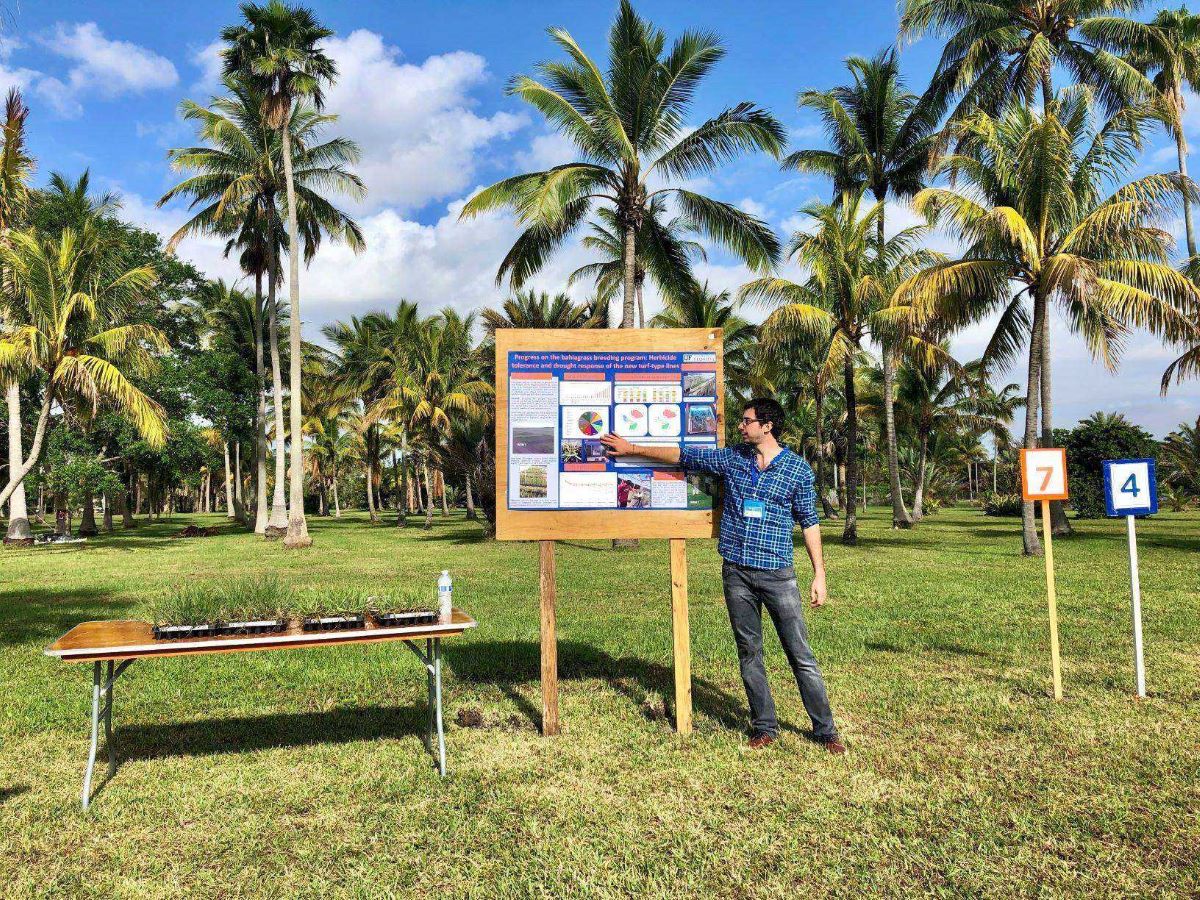
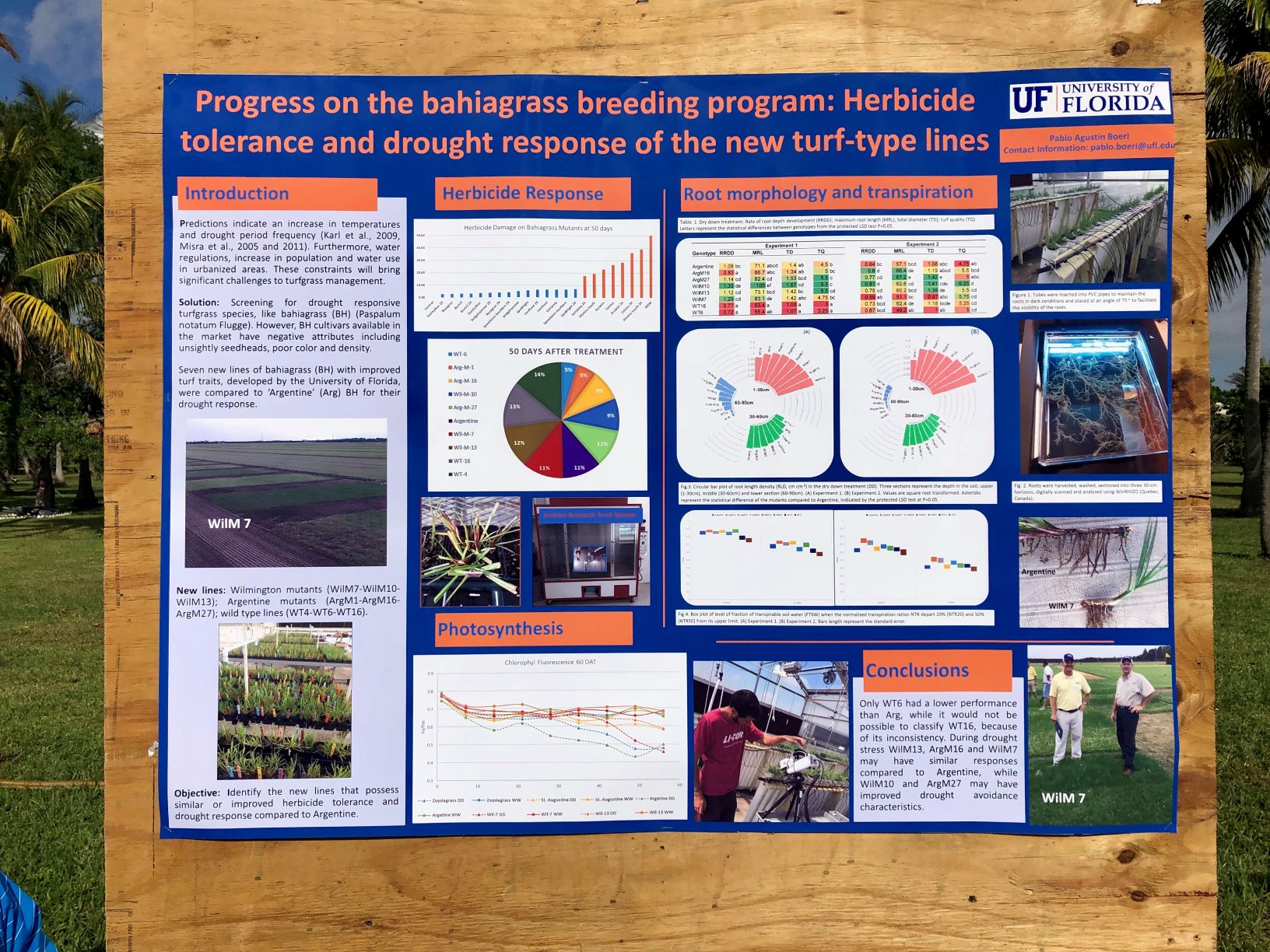
Stop 7. Improved Bermudagrass Cultivar Response to Drought and Fertility
Last but not least we stopped at Dr. Jason Kruse’s improved bermudagrass cultivar response to drought and fertility field plots.
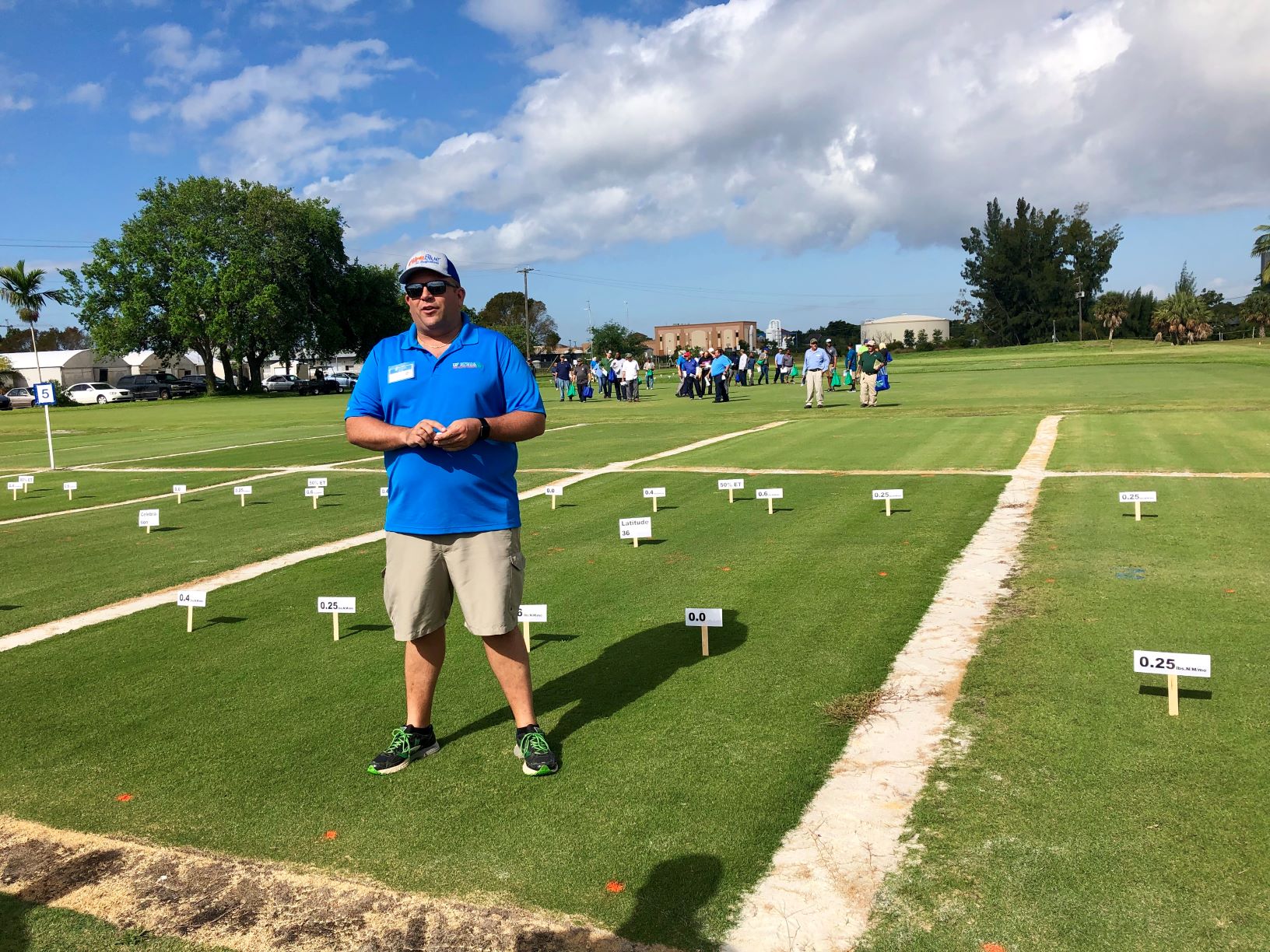
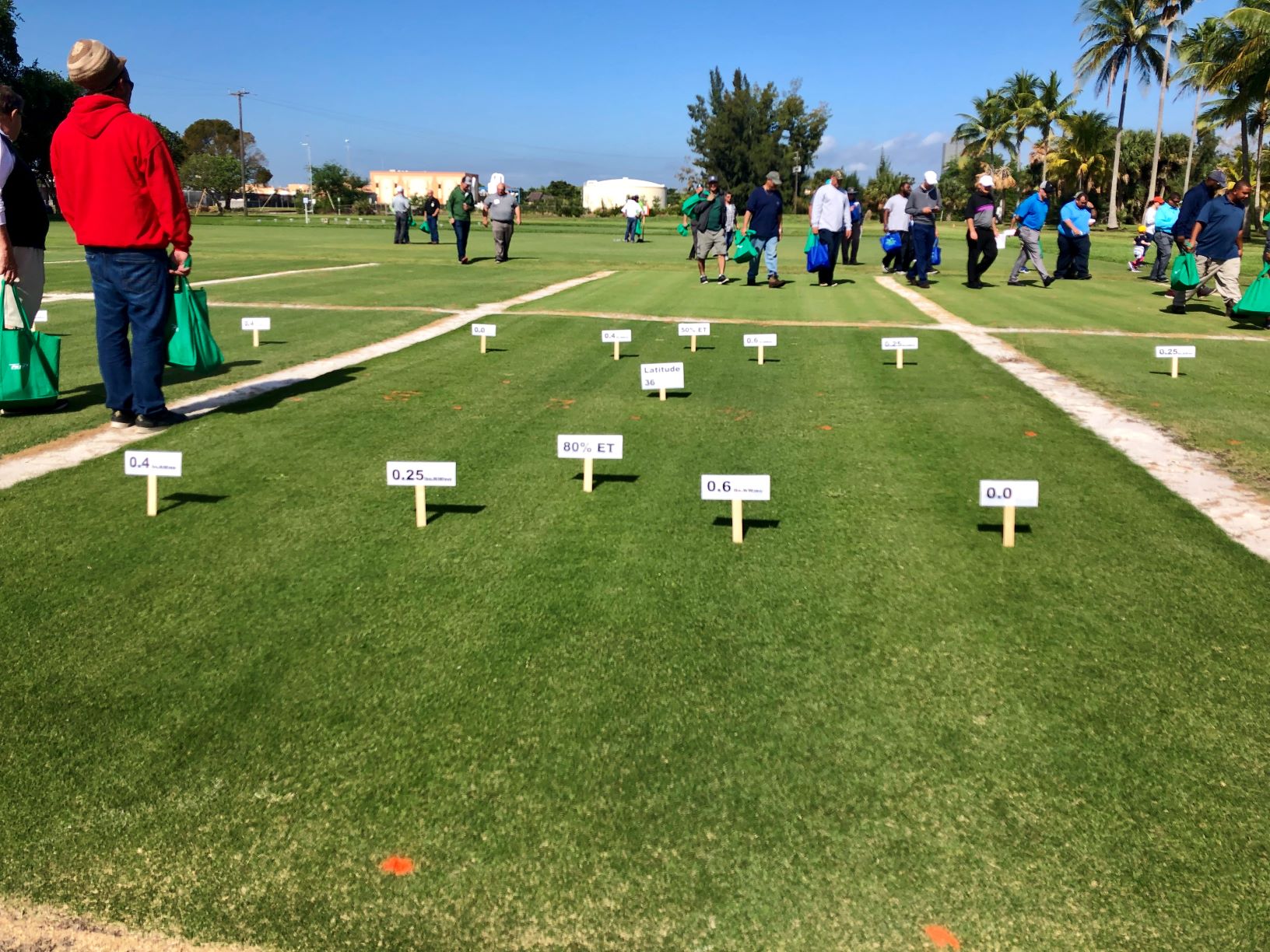
Vendor updates, equipment demonstrations and a BBQ lunch followed the field tours. .
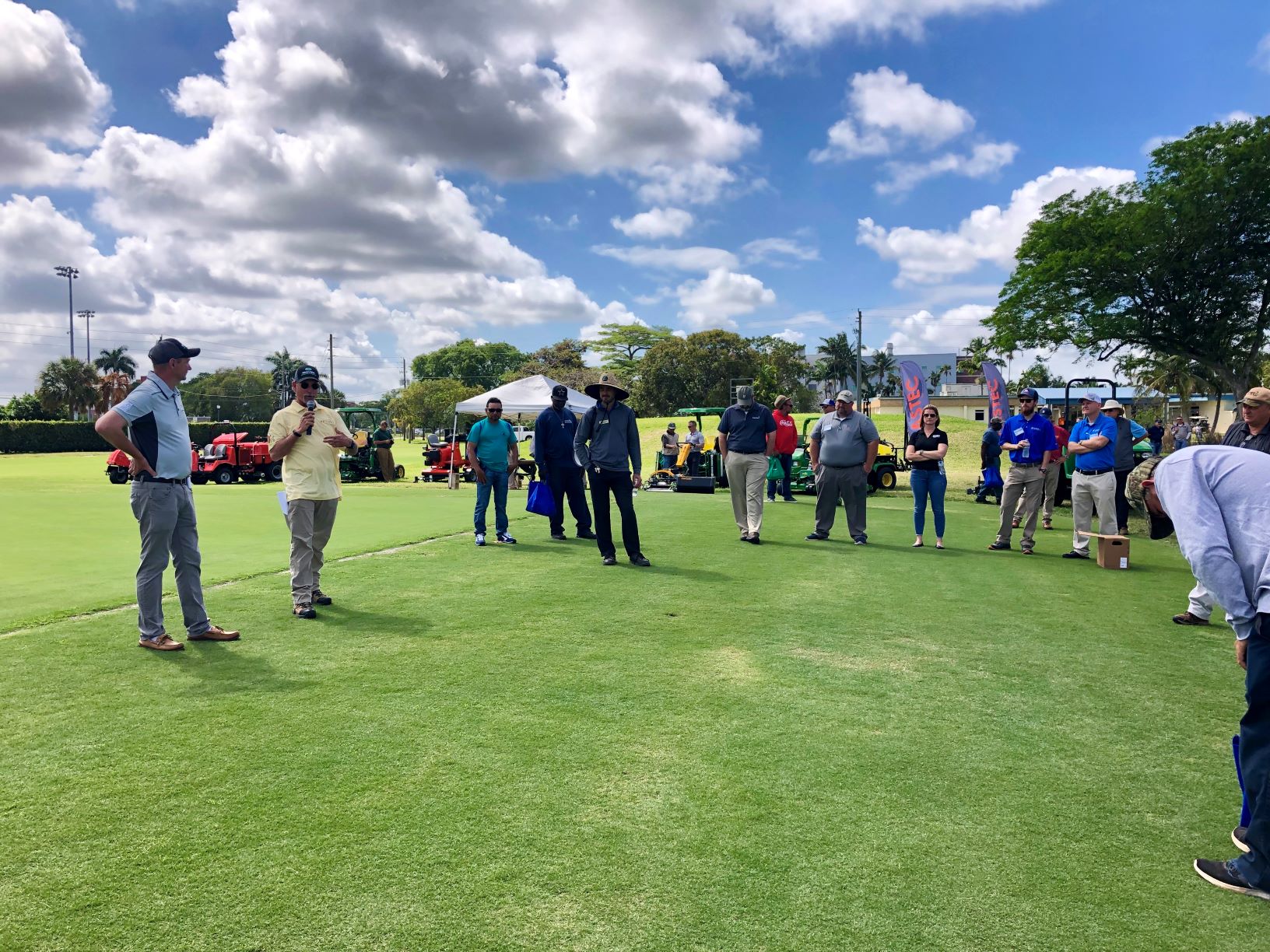
The afternoon was for indoor educational workshops with your one hour choice between Enhancing Pollinator Protection in the Urban Environment, with Dr. Adam Dale, Testing Your Knowledge of Pesticide Safety and Laws, with Dr. J Bryan Unruh, or Golf and Landscape Nutrient Best Management Practices with Dr. Laurie Trenholm.
I chose Dr. Dale’s pollinator talk, and it was quite enjoyable. I was impressed with how engaged the audience was with his talk. He has done some really cook projects with increasing pollinator habitats with wildflower plantings on some golf courses that I hope to bring to Brevard County.
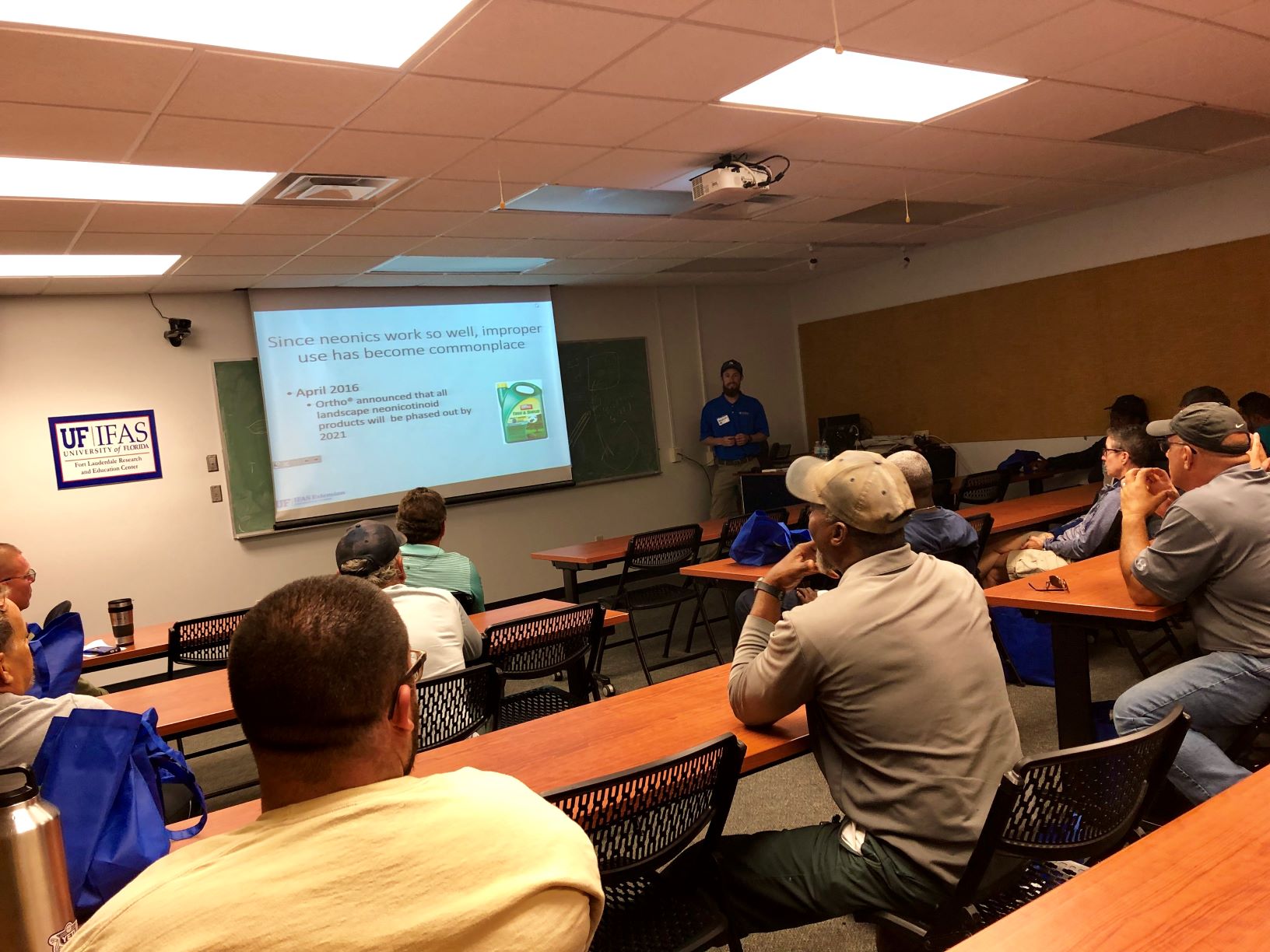
 0
0
